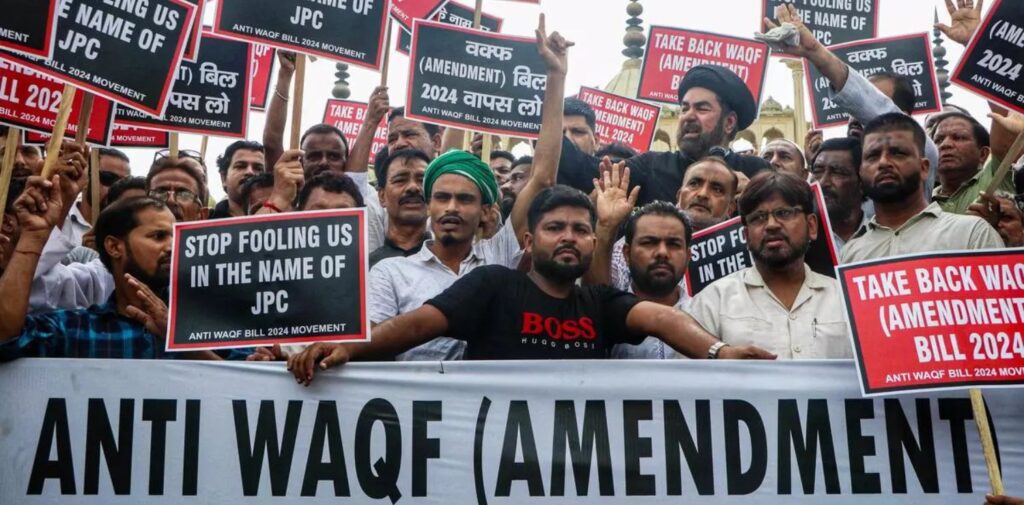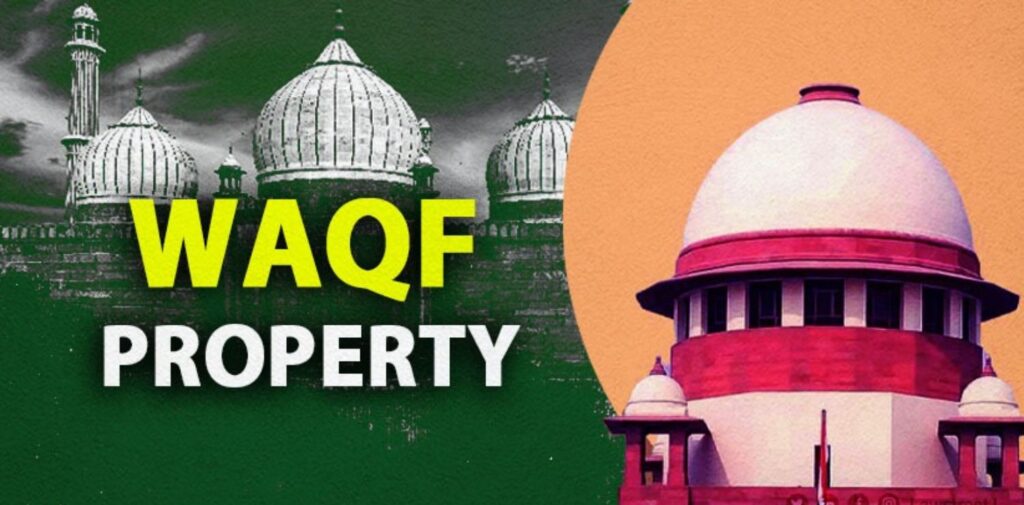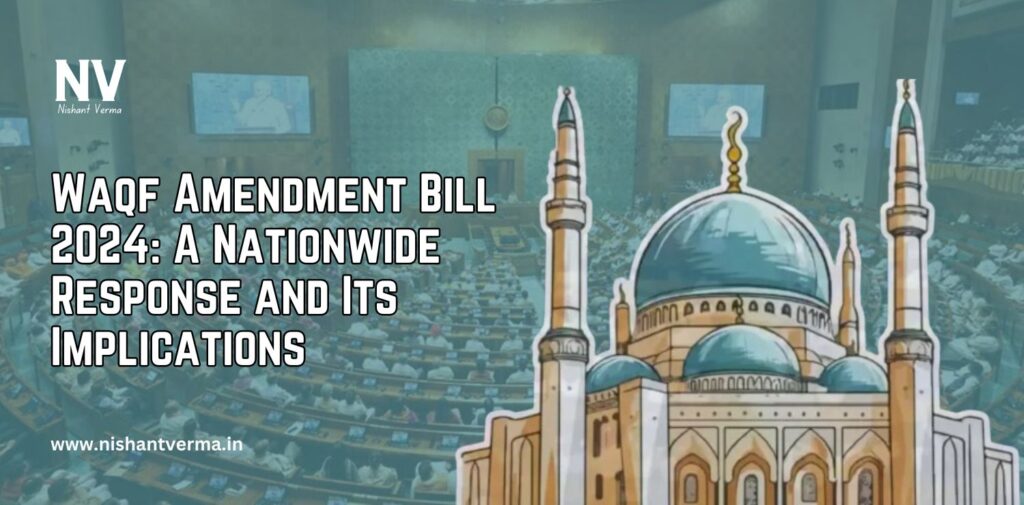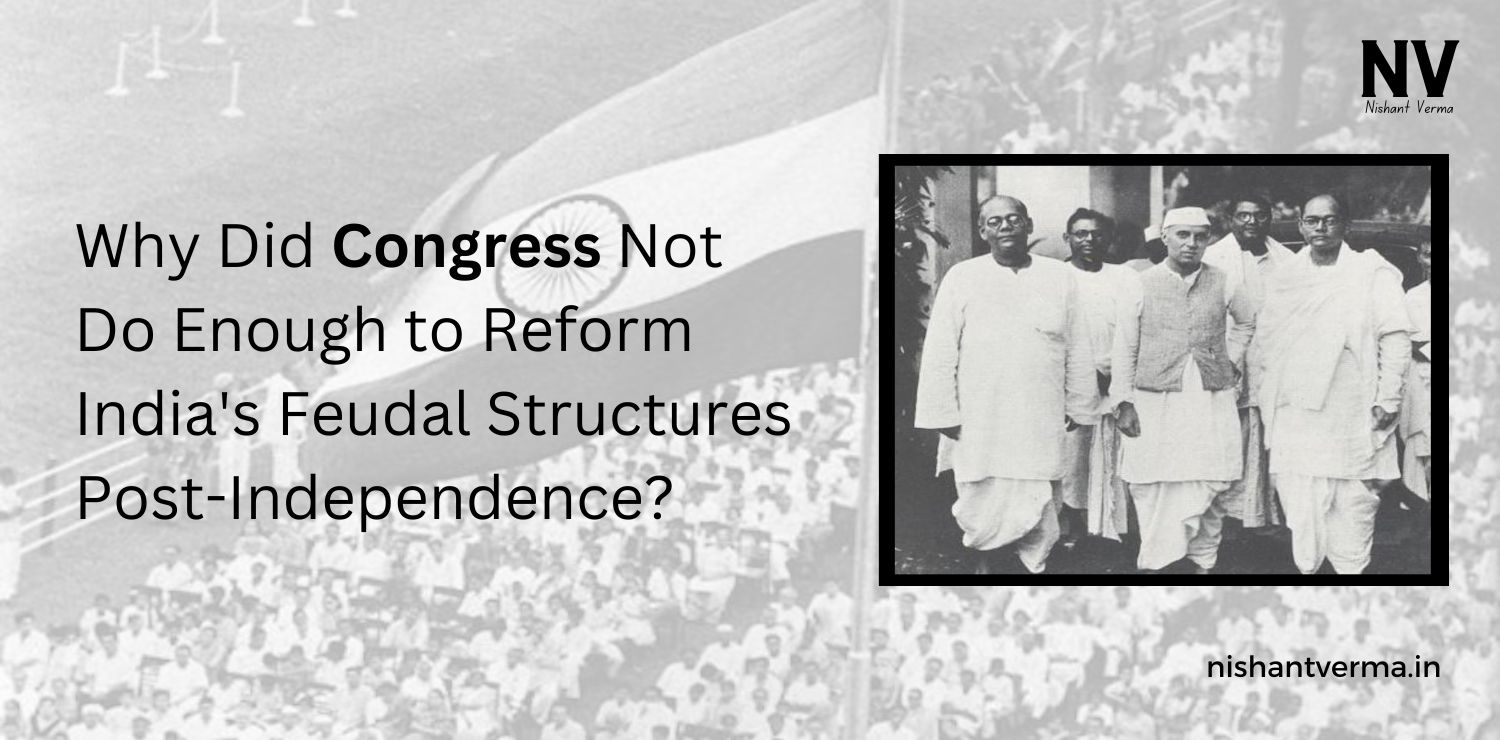The Waqf (Amendment) Bill 2024, a legislative proposal to modify the existing Waqf Act, has sparked massive public interest and debate across India. The bill’s introduction has prompted over 12 crore (120 million) responses from citizens, making it one of the most commented-upon pieces of legislation in recent times. This massive response, fueled by online campaigns, reflects the sensitive nature of Waqf property management in India and its implications for various religious and community stakeholders.
What is the Waqf Amendment Bill?
The Waqf Amendment Bill 2024 proposes key changes to the way Waqf properties are managed and recorded in India. Under current law, Waqf properties—assets dedicated to charitable or religious purposes under Islamic law—are managed by Waqf boards. The amendment seeks to transfer more decision-making power to local government officials, specifically the district collectors. This change would make district collectors responsible for determining whether a property should be classified as Waqf or government land. Additionally, the bill aims to centralize Waqf property management by enhancing digitization efforts, auditing, and documentation practices.

One of the most significant changes proposed is that oral declarations—previously accepted under Islamic law for Waqf properties—would no longer be valid unless formal documentation is submitted. If a property does not have a valid “waqfnama” (a legal document proving the Waqf status of a property), it may be subject to review or dismissal as a Waqf property until the district collector issues a final ruling. This shift seeks to eliminate ambiguities around Waqf property ownership and prevent potential misuse.
The Public Response: A Record-Breaking Engagement
The Joint Parliamentary Committee (JPC) overseeing the Waqf Amendment Bill has been inundated with responses. In just a few weeks, the panel received over 12 crore emails and letters from across the country. This response is unprecedented, far surpassing any previous legislative engagement from the public. The committee has acknowledged the overwhelming volume of feedback, which includes 75,000 detailed submissions backed by documents, requiring the deployment of additional staff to categorize and review the inputs.

This extraordinary level of public involvement stems from competing online campaigns by various religious and political groups. On one side, supporters of the bill—mainly Hindu organizations—are calling for reforms to address longstanding issues related to Waqf land management, including encroachments and lack of transparency. On the other hand, many Muslims and Islamic organizations, including controversial preacher Zakir Naik, have launched counter-campaigns urging people to oppose the bill. Naik’s call for opposition has significantly contributed to the surge in responses from his followers.
Why is the Waqf Amendment Bill So Controversial?
Waqf properties hold a special place in Islamic tradition, often dedicated to charitable purposes such as supporting mosques, educational institutions, graveyards, and shelters. Given the religious significance of these assets, any changes in their management can be seen as an infringement on religious rights. Muslim groups argue that the bill, by centralizing the control of Waqf properties under government officials, could undermine the autonomy of Waqf boards and open the door for disputes regarding property ownership.
The proposal to transfer the final say on Waqf property to district collectors has been one of the most contentious issues. Critics fear that giving bureaucrats—who may not have the same understanding of Waqf traditions—the power to make decisions about religious properties could lead to unfair or biased rulings. Furthermore, removing the provision for oral declarations could invalidate many properties that have been in informal use as Waqf land for generations.
The Role of Technology in Waqf Property Management
A key feature of the bill is the emphasis on digitization and improved auditing of Waqf properties. The government has long struggled with managing these assets, as many properties have unclear ownership records or have been encroached upon by private entities. By digitizing records, the government aims to bring greater transparency to Waqf property management and reduce disputes over land use.

This shift toward digital record-keeping is expected to streamline the management of over six lakh (600,000) Waqf properties in India. The proposed audits and checks will also help ensure that Waqf properties are being used for their intended charitable purposes and are not being misappropriated. Supporters of the bill argue that these reforms are necessary to protect Waqf properties from illegal encroachments and to ensure that the income from these properties is used for the benefit of the community
Looking Ahead: The Road to Consensus
In light of the strong opposition and widespread public interest, the Joint Parliamentary Committee has initiated a nationwide consultation process. Starting on September 26, 2024, the committee will visit five major cities—Mumbai, Ahmedabad, Hyderabad, Chennai, and Bengaluru—to gather feedback from government officials, legal experts, Waqf board members, and community leaders. These consultations are crucial in shaping the final form of the Waqf Amendment Bill.
As the debate over the bill continues, it is clear that the government must strike a balance between reforming Waqf property management and addressing the concerns of religious groups. While the bill seeks to bring transparency and accountability, it must also respect the religious significance of Waqf properties and avoid any perception of government overreach into religious affairs.
In the coming months, the outcome of these consultations and the sheer volume of public feedback will play a key role in determining the future of Waqf management in India. For now, the Waqf Amendment Bill 2024 remains a hotly contested issue, one that will likely shape the relationship between the state and religious institutions for years to come.
Conclusion
The Waqf Amendment Bill 2024 has sparked an unprecedented level of public engagement, reflecting the deep religious and political sensitivities surrounding Waqf property management in India. As the government moves forward with its proposed reforms, it faces the challenge of balancing the need for transparency and accountability with respect for religious autonomy. The debate over the bill highlights the complexities of managing religious properties in a secular democracy, and the outcome will have significant implications for both Waqf boards and the communities they serve.




